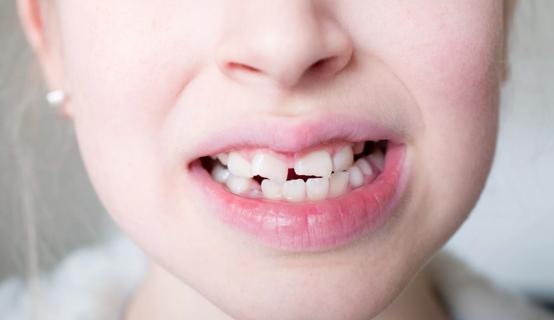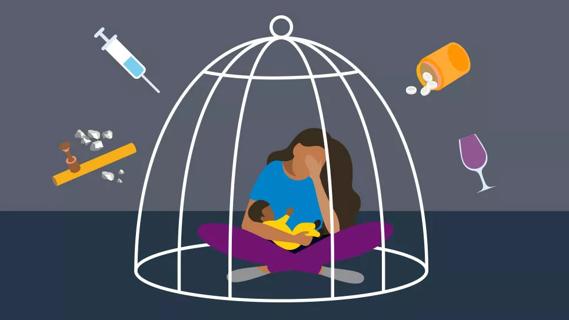Build a lifestyle focused on smart eating and exercise, not numbers on a scale

Extra weight is extra worrisome when it comes to children.
Cleveland Clinic is a non-profit academic medical center. Advertising on our site helps support our mission. We do not endorse non-Cleveland Clinic products or services. Policy
Kids who struggle with their weight are more at risk of developing chronic medical conditions as they grow up, such as Type 2 diabetes and heart disease. Early excess pounds can establish a pattern that leads to a lifetime of weight and health challenges.
Nearly 1 in 5 children in the United States is classified as having obesity, reports the U.S. Centers for Disease Control and Prevention (CDC). Many view the issue as a public health crisis.
“It’s one of the greatest challenges our kids face today,” says nurse practitioner Jennifer Brubaker, PhD, CNP. “In general, kids are doing less physical activity and are exposed to a variety of unhealthy options, like highly processed food and excessive screen time.”
But patterns don’t have to be permanent. Dr. Brubaker says there are ways you can help your child make positive changes for their health. (HINT: It’s not all about the number on the scale.)
Evaluating whether a growing child needs to lose weight can be confusing. “Children should gain weight as they’re growing and getting taller,” explains Dr. Brubaker. “The question is, is their weight gain proportionate to their height gain?”
Your child’s pediatrician can help you make sense of it. During annual well-child visits, they’ll determine if your child’s body mass index (BMI) falls within a healthy range. That’s defined as being between the 5th and 85th percentile on CDC growth charts.
But don’t just fixate on numbers, as weight and BMI are only part of the equation. (Plus, BMI is far from a perfect metric when it comes to giving an accurate picture of overall health.)
Instead, look to make healthy adjustments to your child’s diet and lifestyle, That often does far more good than just shedding a few pounds. In fact, it’s often best to steer clear of specific weight loss goals.
“Think more about healthy behavioral changes than the number on the scale,” advises Dr. Brubaker. “I would rather have a patient come in and tell me, ‘I’m exercising five times a week,’ than say, ‘I lost five pounds.’”
And if there is a need to lose weight, making habits out of eating healthier and exercising more tends to address that issue over time.
So, what can you do to help guide your child toward a healthier lifestyle and the weight management that comes with it? Here are five ways to encourage healthy habits that your kid can carry into adulthood.
Kids often mimic what they see — so let them see healthy behaviors.
That starts with being physically active as a family. “Households where parents can be active with their kids tend to be more successful in achieving a healthier lifestyle,” says Dr. Brubaker.
So, go for a group bike ride around the neighborhood, hit the trails together for a weekend hike or start a family soccer game in the backyard.
“Just get everyone moving in some way — and make it fun, too!” encourages Dr. Brubaker.
Pay attention to what you’re doing during times of inactivity as well. If your eyes are locked on a smartphone, tablet or TV screen for hours, odds are your kid will follow suit. That isn’t healthy for either of you on many different levels.
The easiest way to avoid eating junk food? Don’t buy it.
Try to leave highly processed snacks on store shelves. Instead, focus on buying more natural healthy foods to keep around the house. That means filling your fridge with plenty of fruits and vegetables.
“Make it easier for children to make the right choice,” says Dr. Brubaker. “It’s very unfair if we’re putting our children in situations over and over again where unhealthy choices are confronting them on a daily basis.”
Did your kid bring home a report card showing straight As? That’s great! But instead of picking up a box of doughnuts or pizza to celebrate, maybe offer up something that encourages an active lifestyle.
Maybe get them a pair of rollerblades to say congrats. Or plan a kayaking trip or a picnic at the park where you can walk the trails or fling a Frisbee.
If children are involved in preparing meals, they might be more likely to try certain foods they wouldn’t otherwise eat. Talk to them while cooking to give them a better understanding of food and how it meets their nutritional needs.
If you’re able, consider taking the process outside, too. “Having a garden and getting the kids invested in growing their own food is a good way to encourage eating fruits and vegetables,” says Dr. Brubaker. (And gardening is a good way to stay active.)
Studies also show that family meals can help improve the diets of children and limit obesity. This also goes back to parents being role models by demonstrating how to eat healthier.
An annual well-check visit offers a perfect opportunity to review your child’s height and weight changes with their pediatrician. (There’s also a long list of recommended screenings and immunizations.)
Research shows that approximately 1 in 8 children don’t go for an annual exam, with misses getting more frequent as kids hit their teenage years.
“Unfortunately, well-child visits sometimes get overlooked in the period where the kids are most likely to start gaining excess weight,” notes Dr. Brubaker. “Commit to making sure your child sees their primary care provider annually. If you feel like your child is struggling with excess weight gain, ask for a referral to specialty care.”
Talking about weight is difficult at any age. When the discussion involves children, it can be even tougher. Studies have shown that fixating on a number on the scale can lead to more weight gain and obesity.
That’s why the American Academy of Pediatrics recommends that parents focus less on weight and more on establishing healthy lifestyle skills.
“It might seem like a minor difference,” says Dr. Brubaker, “but it brings much better results.”
Learn more about our editorial process.

Manage that sugar high with these tips

Plus alternate strategies for reducing BMI

Lanugo — the soft, fine hair that develops in utero — is harmless and will shed within a few weeks

Crossed eyes in a newborn are fairly common, typically harmless and usually go away

A dental emergency, quick action is key to preventing long-term damage

Severe and debilitating headaches can affect the quality of your child’s life

When breastfeeding doesn’t go as planned, you may need to supplement with formula or donor breast milk — and that’s OK

Neonatal opioid withdrawal syndrome, or NOWS, can develop when a birthing parent uses opioids, nonmedical drugs or even some prescription drugs during pregnancy

Your metabolism may torch 1,300 to 2,000 calories daily with no activity

A gentle touch in all the right places may help drain your sinuses